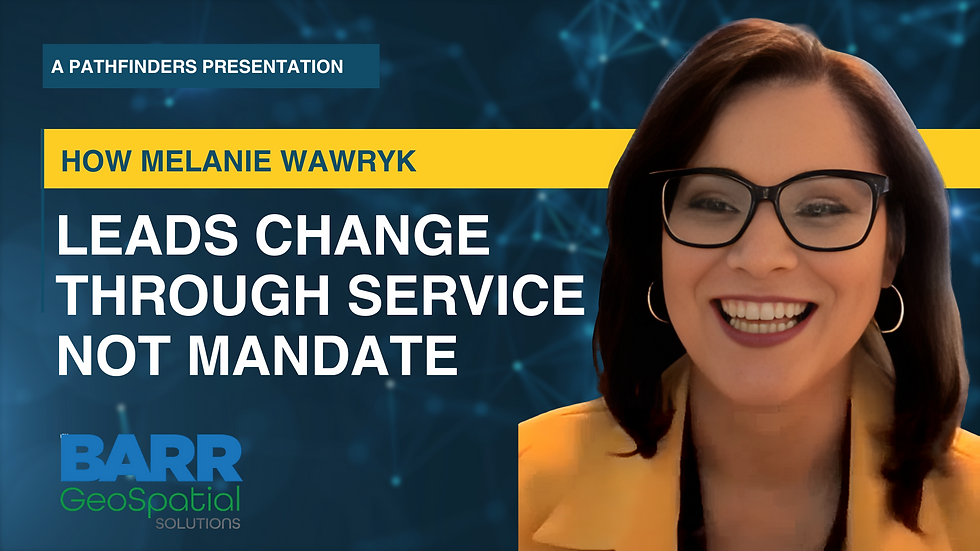Ron Cook: Guiding Change With Spatial Thinking
- Jeff Lamb

- Jun 15, 2024
- 2 min read
Updated: Aug 29
When Ron Cook tells people what he does for a living, he often gets puzzled looks. “I make maps,” he says with a smile. But there’s so much more beneath the surface. As a geospatial expert with decades of experience, Ron doesn’t just create visualizations—he helps people understand the world through the lens of place, context, and connection.
I used to call myself a geospatial Sherpa,” Ron says. “Not in the ethnic sense, but in the guiding sense—the climbing partner, the source of advice, the helping hand along someone’s journey.” In every job he’s taken, from military projects to teaching students at NAIT, Ron has carried the load a bit for others, showing them the power of spatial thinking.
Ron’s own journey to GIS (Geographic Information Systems) wasn’t a straight line. It began with a two-year stint in electrical engineering and a hands-on drafting program before he found his footing in a geography degree. “I didn't want to build the systems,” he laughs, “I wanted to apply them.” That desire to use geography to understand real-world problems set the tone for his entire career.
Whether he was modernizing a paper-based data system or upgrading a spatial database containing 21 years of 3D mine data, Ron always said yes to the challenge—even when he wasn’t sure if it could be done.
“Sometimes I go into things thinking, ‘I don’t know if this will work,’” he admits, “but I roll up my sleeves and figure it out.”
Ron’s work has had real impact: from supporting Canadian military operations with accurate cartographic data, to training the next generation of spatial thinkers. Yet one of his proudest moments came not from his own project, but from seeing a colleague—initially hesitant—absolutely shine. “She blew it out of the water. That was one of my best projects, and I didn’t even do it.”
Ron is the first to say his path hasn’t been easy. He compares his career to an ECG strip—full of ups and downs. But through it all, he’s embraced change, even sought it out.
“For me, change allows growth,” he says. “You can leverage what you’ve learned and grow into new things.”
What grounds him is humility. He believes in teams, not titles. “Everyone contributes—whether you're the project manager or the GIS analyst digitizing data. We all succeed or fail together.”
Looking back, Ron isn’t just proud of what he’s done—he’s excited for what’s still to come.
“There’s still so much to learn. And even more to relearn,” he says, smiling. In every map, every challenge, and every student he’s mentored, Ron sees a chance to guide someone else forward.







Comments